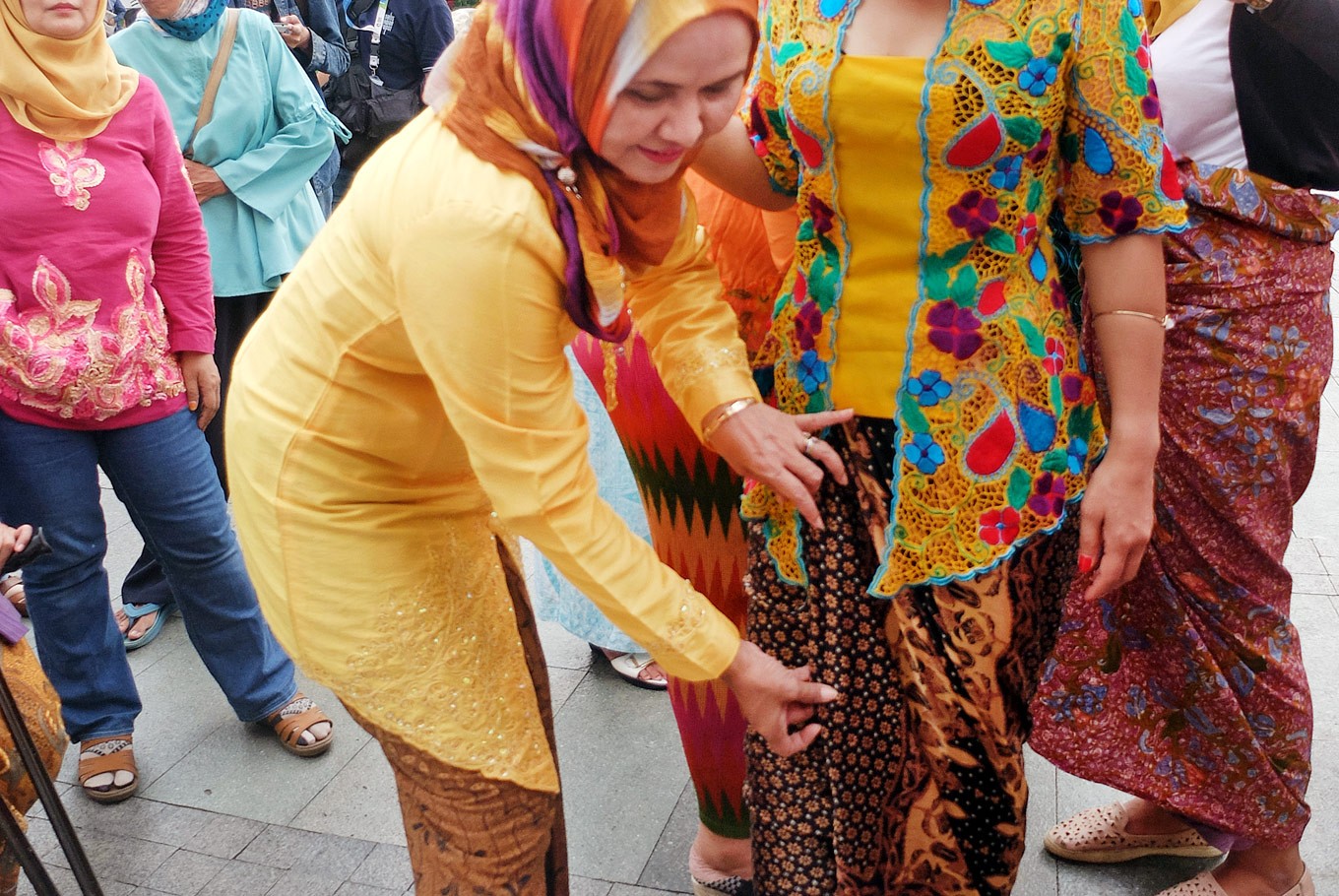Empowering women with 'kain'
“We’re here to show how traditional clothes can be fun and funky,” she said.
Change Size
 Taking care: A woman helps her friend fasten her sarong before they take a walk. (JP/Juliana Harsianti)
Taking care: A woman helps her friend fasten her sarong before they take a walk. (JP/Juliana Harsianti)
People with disabilities are capable of learning skills for self-empowerment.
This message has always been reiterated by Maulani Rotinsulu, an executive at the Association of Women with Disabilities, which recently held a bazaar and discussion at the Jakarta Theater, in Central Jakarta, where physically impaired women displayed their business products, like snacks, handicraft and artwork.
The desire to keep learning, Maulani says, is part of their struggle for government recognition of their rights.
“With their skills, disabled women can promote mutual assistance while intensifying the pursuit of their rights,” said Maulani at the bazaar, which also featured a talk-show, musical performance and workshop.
One of the activities that attracted visitors to the workshop was a technique used to dress in kain (wraparound cloth) demonstrated by a group of traditional costume lovers. The group is uniquely called Buku, Kopi dan Kebaya (books, coffee and kebaya) because of their love of kebaya (traditional blouses) and books.
Lulu, one of the first members of this community, said the name of the group was inspired by their fondness of drinking coffee at cafes during their program.
Lia Nathalia, a participant at the workshop, said many young women tend to abandon traditional wraparounds and kebaya as they are seen as old-fashioned and worn only on special occasions. In fact, with slightly modified ways of donning them, kain and kebaya can also serve as daily wear.
“We’re here to show how traditional clothes can be fun and funky,” she said.
The group’s presence among disabled women was meant to introduce various methods of putting on traditional costumes.
“Although we mostly bring along batik, some of us also present our regional outfits,” said Lulu. Several community members were wearing rangrang (zigzag patterned) cloth from Bali and jumputan (dotted and floral-motif) cloth from Palembang, South Sumatra to reflect the diversity of local fabric.
In a tutorial session, two to three women are taught by one tutor how to wrap around and fasten their kain in a way that can easily be adjusted for different activities.
“The techniques will make it easier to use the cloth without having to cut it and those already mastering the basics can develop varied wrapping models,” Lia said.
Workshop participants also discussed the different types of traditional fabrics and their philosophies, taking note that certain batik motifs are exclusively designated and not to be casually worn for all occasions.
Participants with hearing impairment were able to follow the workshop with the assistance of sign-language interpreters. They described the new skill as useful not only for variations in public appearance, but also for their professions.
Azizah, a participant with handicapped feet, said having the knowledge on how to wear regional wraparounds would greatly help her as a dressmaker.
“This becomes an asset for me to make suggestions to customers on how to elegantly match kebaya with kain,” she said, adding that she previously had no idea of how to use wraparounds in various ways without cutting them.
“Now I can suggest that my customers put on their kain in full length without cutting and sewing,” she added.
It’s such skills that the disabled women’s association always seeks to provide in order to empower its members and enhance their capabilities.
“By learning new skills, my disability doesn’t make me feel embarrassed and inferior anymore,” Azizah said.









